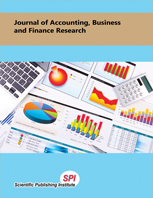The Nexus Between Gambling Tax and the Gross Domestic Product in Kenya
DOI:
https://doi.org/10.55217/102.v15i2.551Keywords:
Betting, Lottery, Gaming, Prize competitions, Gross domestic product, Tax rates.Abstract
This study seeks to assess the relationship between GDP and the tax rates imposed on each sub-sector, i.e., betting tax, lottery tax, gaming tax and prize competition tax. The target population for this study includes all licensed gambling operators in Kenya. Secondary data was obtained via request from the relevant authorities in Kenya. Regression analysis was performed on the data to model the relationship between the variables. It was found that an increase in the monetary amount of gambling taxes levied from winners and gamers would likely lead to a decrease in GDP, whereas the same increase in the monetary amount of gambling taxes levied from winning lottery players and monetary prize winners would likely lead to an increase in GDP. The study recommends that a moderate gambling tax regime should be imposed on all other operators except lotteries. The tax rates for lottery winnings and prize competition winnings should be increased, whereas the tax rates for betting winnings should be decreased.


